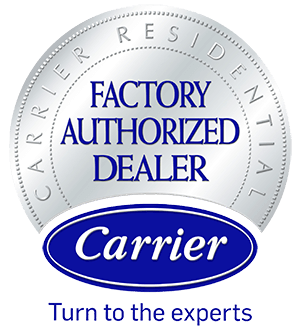According to the United States Environmental Protection Agency (EPA), the air inside of your Frederick, MD home is likely two to five times more contaminated than the air outdoors. With furnishings and building materials constantly off-gassing volatile organic compounds (VOCs) and residents burning candles and discharging cans of chemical-laden cleaners, solvents, and room-freshening sprays, there’s a lot that you’re breathing in. But when the outdoor air quality declines, your living environment could become a fresh air sanctuary.
Outdoor Contaminants That Can Impact Your IAQ
For people with severe asthma and allergies, high pollen counts make the outdoor air downright unbreathable. Each time you open a window or door or turn your AC or heat pump on, pollen and other allergens could come flooding in. Although most HVAC systems don’t actually exchange indoor air with air from outside, fluctuations in in-building air pressure could cause unfiltered air to seep in through cracks in building materials, passive exhaust vents, and other openings.
Wildfires
Wildfires are among the biggest contributors to sudden and significant decreases in outdoor air quality. Even if fires are burning many miles away, changes in wind direction and wind speed could cover your neighborhood in thick, gray clouds of smoke. When wood and other materials burn, they undergo a series of chemical changes. Thus, although wildfire smoke can sometimes smell woodsy or earthy, it’s rife with toxins that are harmful to humans.
Chemical Spills
Major chemical spills don’t occur often, but it’s best to prepare your indoor air quality (IAQ) before these events happen. Train crashes, truck accidents, and factory fires can all release caustic, corrosive, and carcinogenic contaminants into the environment. While some events come with evacuation warnings, many require people to shelter in place. With a well-primed HVAC system and a relatively airtight home, you can enjoy clean, breathable air until the problem is contained.
Active Construction
If new development breaks ground nearby, expect to change your HVAC air filter more often. These projects release lots of dust, silt, and sand into the outdoor air. Not only do they coat nearby cars and building windows, but these particulates also find their way into building interiors. You can minimize the impact that active, nearby construction has on your IAQ by checking and changing your HVAC air filter often, keeping your windows and doors closed as much as possible, adding weatherstripping, and sealing up air leaks.
How to Get Your IAQ Ready for the Unexpected
Your HVAC system filters your indoor air during normal operation. To optimize the performance of HVAC air filters, homeowners are advised to check them monthly and replace them every one to three months.
For improved air filtration, consider upgrading your standard HVAC air filter to an option with a higher maximum efficiency reporting value (MERV) rating. Most standard filters have MERV ratings between 6 and 8. A filter with a MERV rating of at least 10 will have a greater surface area, finer mesh, and the ability to pick up many micro-fine particulates.
Master the Art of Using Your Home’s Mechanical Ventilation
Ventilation improves IAQ by routing stale indoor air out and letting fresh, outside air in. However, when the outside air is the problem, you may want to close some of your mechanical vents throughout the building. This is especially true when dealing with wildfire smoke or airborne chemicals. If you have a mechanical venting system installed, ask our team how to leverage it during an outdoor air quality emergency.
Install an Integrated Air Purifier or Air Scrubber
HVAC air filters do a pretty good job of straining out large-sized allergens and contaminants like dust mites, pollen, textile fibers, and dirt. However, gaseous, chemical contaminants pass right through them. This is also true of many upgraded HVAC air filters. Thus, one of the best ways to prepare your home for wildfire smoke, airborne chemicals, and other outdoor air quality concerns is by installing higher-performing, integrated HVAC system accessories. These include:
- Whole-house air purifiers
- Media filters
- Air scrubbers
- Humidification/dehumidification equipment
Surprisingly, keeping your indoor humidity levels in check can play a major hand in protecting and improving your IAQ. For instance, in overly dry homes, adding moisture to the indoor air will weigh many airborne particulates down and force them to settle on indoor surfaces.
How to Respond to an IAQ Emergency
When the outdoor air suddenly declines and you’re tasked with the challenge of keeping outside contaminants from getting in, set your air conditioner or heat pump to recirculate mode, and close your windows and doors. If there are small gaps beneath your doors and no weatherstripping, you can further block the influx of outdoor contaminants with a damp, rolled or folded towel.
We help residents of Frederick, MD maintain healthy, comfortable homes. We offer outstanding heating and cooling installation, maintenance, and repairs. You can also count on us for top-notch plumbing, drain cleaning, and indoor air quality improvements. To schedule an appointment, contact Markool Heating & Cooling now.






